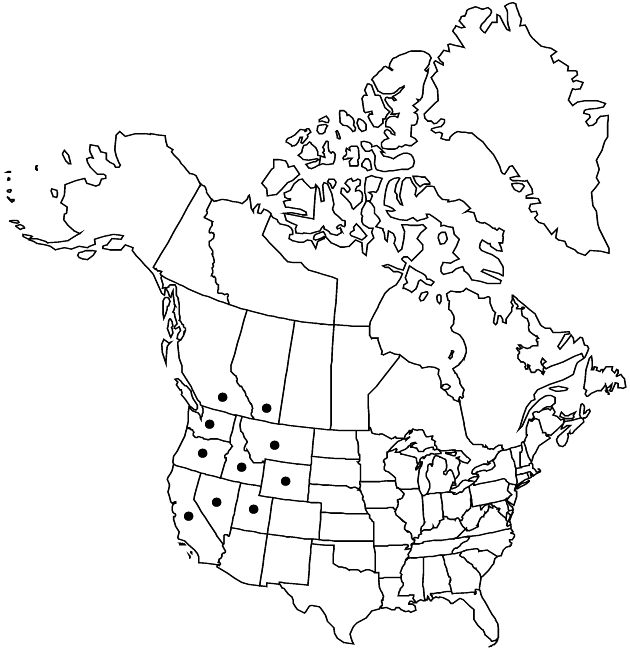Difference between revisions of "Senecio fremontii"
Fl. N. Amer. 2: 445. 1843.
RevisionBot (talk | contribs) m (Bot: Adding category Revision Pending) |
RevisionBot (talk | contribs) m (Bot: Adding category Revised Since Print) |
||
| (One intermediate revision by one other user not shown) | |||
| Line 79: | Line 79: | ||
|publication year=1843 | |publication year=1843 | ||
|special status=Endemic | |special status=Endemic | ||
| − | |source xml=https:// | + | |source xml=https://bitbucket.org/aafc-mbb/fna-data-curation/src/2e0870ddd59836b60bcf96646a41e87ea5a5943a/coarse_grained_fna_xml/V19-20-21/V20_1258.xml |
|tribe=Asteraceae tribe Senecioneae | |tribe=Asteraceae tribe Senecioneae | ||
|genus=Senecio | |genus=Senecio | ||
| Line 89: | Line 89: | ||
[[Category:Treatment]] | [[Category:Treatment]] | ||
[[Category:Senecio]] | [[Category:Senecio]] | ||
| − | [[Category: | + | [[Category:Revised Since Print]] |
Latest revision as of 18:21, 6 November 2020
Perennials, 10–30(–40) cm (perennating bases subrhizomatous, spreading, sometimes knotty-woody). Herbage (often purple-tinged) glabrous. Stems clustered (arching upward to semiprostrate). Leaves evenly distributed or smaller and fewer distally (somewhat stiffish-succulent when fresh, proximalmost and distalmost often smaller, bractlike); petiolate; blades ovate or obovate to oblanceolate, 2–5(–7) × 1–3(–4) cm, bases ± truncate to tapered, margins laciniate to dentate or subentire. Heads 1–5+. Calyculi 0 or of 1–5+ usually lance-deltate to linear, sometimes foliaceous, bractlets (lengths mostly 1/5–1/2 phyllaries). Phyllaries (± 8) ± 13 (± 21), 5–12 mm, tips green or brownish. Ray florets ± 8; corolla laminae 8–12 mm. Cypselae glabrous or strigose-hirtellous, at least on angles. 2n = 40, 40+, 80.
Distribution

Alta., B.C., Calif., Colo., Idaho, Mont., Nev., Oreg., Utah, Wash., Wyo.
Discussion
Varieties 4 (4 in the flora).
The varieties are distinguished by morphologic tendencies plus their geographic ranges.
Selected References
None.
Lower Taxa
Key
| 1 | Plants (10–)25–40 cm; stems straight or gently arching upward; leaves often to 7 × 3 cm, bases of larger ones weakly clasping; phyllaries (9–)10–12 mm | Senecio fremontii var. blitoides |
| 1 | Plants 10–20+ cm; stems usually arching upward; leaves usually smaller than 4 × 2 cm, bases not clasping; phyllaries 5–10 mm | > 2 |
| 2 | Leaf margins notably laciniate or laciniate-toothed (segments sometimes also toothed) | Senecio fremontii var. inexpectatus |
| 2 | Leaf margins toothed or subentire | > 3 |
| 3 | Leaves smaller and fewer distally; phyllaries 5–7(–8) mm | Senecio fremontii var. occidentalis |
| 3 | Leaves ± equally developed along stems; phyllaries (7–)8–10 mm | Senecio fremontii var. fremontii |